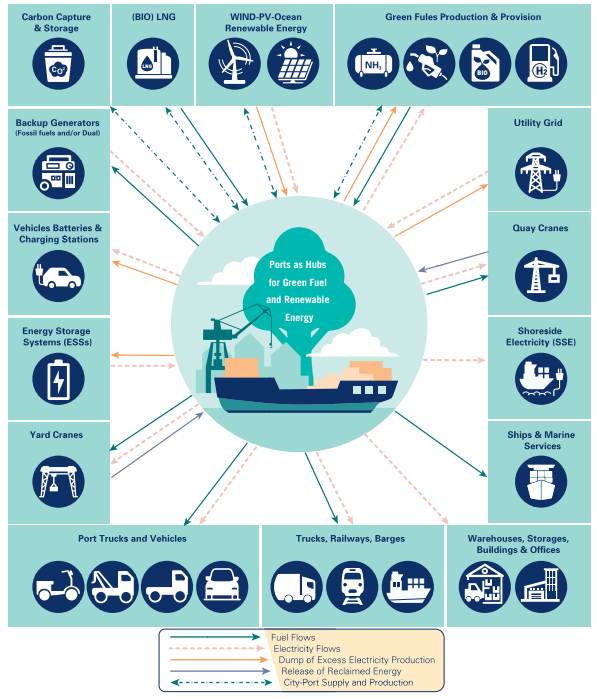The World Maritime University has published a report exploring ports’ energy transition frameworks, based on opinions shared by relevant stakeholders.
The report was based on a roundtable discussion was to bring together relevant stakeholders to share their perspectives on the main benefits and barriers concerning four broad topics: technologies in port energy transition, policy and legislation, promising business models, and capacity building and global cooperation in maritime decarbonization, from an international and regional perspectives.
Key findings
- Addressing port decarbonization requires a comprehensive approach that brings together various stakeholders and strategies.
- Collaboration is of key importance, and can enable partnerships between the private and public sectors to combine resources and expertise.
- Measures such as tax breaks, subsidies, and financial support can incentivize the adoption of environmentally friendly practices.
- Investment in technology and infrastructure is essential to reduce emissions in port operations. The development of comprehensive decarbonization strategies that encompass both the private and public sectors is crucial for a cohesive and effective approach, in addition to local, regional, and global cooperation.
- Research and development initiatives are vital and should be accompanied by training programmes.
- Stricter regulations, effective monitoring systems, voluntary agreements, and cooperation are vital to enable the transition towards cleaner ports.
- Market-based measures and investments in green finance offer benefits by incentivizing emissions reduction.
The report also emphasized the need to adopt a multifaceted approach to achieve port decarbonization. This approach will be pivotal for overcoming the six primary barriers faced by port stakeholders: regulatory, social perceptions, economic, administrative and managerial, information and awareness, and technical challenges. The involvement of stakeholders in decision-making processes plays a critical role.

According to the report, it is imperative to integrate and engage managerial levels with a long-term commitment. This approach is intended to establish a clear and adaptable business model, which has been identified by participants as one of the highest priorities for ports. Recognizing the role of port stakeholders in climate change mitigation is a crucial pillar. Their active involvement contributes significantly to enhancing environmental credibility and shaping impactful policies and regulations towards the decarbonization of the shipping sector.
































































